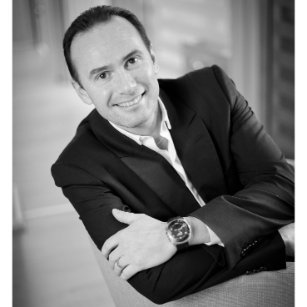We use cookies to optimise the design and performance of our websites. By continuing to browse this website, you agree to the use of cookies. Find out more about our cookies and how we use them.
Portrait Fabrice Plasson
 Executive MBA
Executive MBA- Go back
Your Recruitment Managers
Célia KAUFFMANN • +33 6 31 03 02 74
Ali ELYASSARI • +33 6 72 14 58 37
A unique e-mail: exec_mba@eml-executive.com
Fabrice Plasson (EMBA 2009) : “If I had to create a business, it would of course be a start-up!”
Founder and CEO of Amoéba, a company from Lyon that manufactures and commercialises biological water purification products, Fabric Plasson won the “green business” prize at the Ernst & Young Entrepreneur of the Year Rhône-Alpes regional awards 2012. This award recognises a business person who has created an emblematic ecological company or who has managed to strategically steer a company towards new ecological areas of growth.
What pushed you to launch your own business?
- My scientific background led me to become the regional European manager of a small American company based in San Francisco. But I had always wanted to start my own company. We often say that an entrepreneur is not a scientist and a scientist is not an entrepreneur but I consider myself to be at the cross-roads between those two paths.
Amoéba is developing an organic biocide which could revolutionise the water purification market. What stage of the process are you at now?
- Having obtained authorisation to market the product for research and development from the Ministry of Ecology, Sustainable Development and Energy, we are now launching our first industrial trials. The product has also been classified by the French health authorities (ANSES) as a non-dangerous product, which makes our biocide the only one in the world that poses no risk to human or environmental health. Our solution is 100% natural, whereas all the other biocide products used today are toxic and aggressive to some degree. In some specific cases, we could use Amoéba to replace certain chemical products, for example, swimming pool water disinfected with chlorine, a chemical element which is well-known for its side effects.
What did you take away from your time at EMLYON Business School?
- Â When I joined the Executive MBA programme I was determined to update my knowledge on various subjects like finance and human resource management. My aim was to build solid skills in the areas that have to be taken care of on a daily basis by any entrepreneur. When you set up a business, and even more so when your activity is solitary, you're on your own during the start-up period. And if, for budgetary reasons, you are not able to rely on the services of a financial director, it is useful to be able to carry out these tasks yourself at a basic level. I wanted to learn the different languages of business because, once you know them, you can interact convincingly with others. When you meet with a bank manager, knowing what you're talking about can be critical, especially if you are negotiating.
What's your definition of entrepreneurship?
-  You don't become an entrepreneur, you're born one. It's a difficult job. Every day people throw obstacles in your path, competitors try to destabilise you and risk aversion is the norm. I am convinced that not everyone can be an entrepreneur. I'm not just talking about skills, but strength of character and the ability to makes sacrifices that some have and others don't. In fact, a start-up can't be managed like a large company or an SME. The way of working is different, you either like it or you don't. What I mean is, a start-up manager really has to get his or her hands dirty and be mobilised on a lot more fronts than if they were managing a “classic” business. In the end, when you're an entrepreneur, you're actually a serial entrepreneur and you tend to be drawn to what feels right. Personally, if I had to set up another business in the future, it would definitely be a start-up and only in a field I know well.

